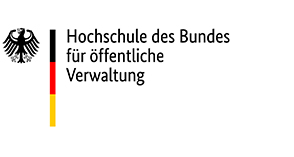| Monographien und Herausgeberschaften |
|---|
- Janusch, Holger/Dörfler, Thomas. 2025. Integrierte Sicherheit für Deutschland? Die Nationale Sicherheitsstrategie der Bundesrepublik Deutschland. In: Zeitschrift für Politik (als Herausgeber des Sonderband 13).
- Dörfler, Thomas. 2019. Security Council Sanctions Governance. The Power and Limits of Rules. Routledge Research on the United Nations. Abingdon, Oxon & New York: Routledge. [2020 als Paperback erschienen].
|
| Zeitschriftenaufsätze (mit Peer Review) |
|---|
- Dörfler, Thomas. 2025. Prospect Theory, Groupthink, and Amplified Frames of Loss: Making Sense of Russia's Decision to Invade Ukraine. In: Foreign Policy Analysis 21 (3): oraf018.
- Dörfler, Thomas. 2025. Gefahr erkannt, Gefahr gebannt? Bedrohungen und der effektive Mitteleinsatz in der Nationalen Sicherheitsstrategie. In: Zeitschrift für Politik 72 (Sonderband 13): 51-69.
- Dörfler, Thomas. 2024. The Wagner Group, Yevgeny Prigozhin, and PMC-State Relations in Russian Foreign Policy. Explaining the Enlistment of Private Military Companies during the Ukraine War. In: Politische Vierteljahresschrift 66 (1): 189-211.
- Dörfler, Thomas. 2023. Compartmentalised diplomacy in the United Nations Security Council: breaking the impasse. In: Journal of International Relations and Development 26 (3): 579–603.
- Dörfler, Thomas. 2023. Why Rules Matter: Shaping Security Council Sanctions Policy in Counter-terrorism and Beyond. In: Journal of Global Security Studies 8 (1): ogac041.
- Dörfler, Thomas/Heinzel, Mirko. 2023. Greening Global Governance: INGO Secretariats and Environmental Mainstreaming of IOs, 1950 to 2017. In: Review of International Organizations 18 (1): 117–143.
- Dörfler, Thomas. 2022. The Effect of Expert Recommendations on Intergovernmental Decision-Making: North Korea, Iran, and Non-Proliferation Sanctions in the Security Council. In: International Relations 36 (2): 237-261.
- Heldt, Eugénia C./Dörfler, Thomas. 2022. Orchestrating Private Investors for Development: How the World Bank Revitalizes. In: Regulation & Governance 16 (4): 1382-1398.
- Dörfler, Thomas/Gehring, Thomas. 2021. Analogy-based Collective Decision-making and Incremental Change in International Organizations. In: European Journal of International Relations 27 (3): 753-778.
- Gehring, Thomas/Dörfler, Thomas. 2019. Constitutive Mechanisms of UN Security Council Practices. Precedent Pressure, Ratchet Effect and Decisions on Council Action in Intrastate Conflicts. In: Review of International Studies 45 (1), 120-140.
- Gehring, Thomas/Dorsch, Christian/Dörfler, Thomas. 2019. Precedent and Doctrine in Organizational Decision-making: The Power of Informal Institutional Rules in the United Nations Security Council’s Activities on Terrorism. In: Journal of International Relations and Development 22 (1), 107-135.
- Hosli, Madeleine/Dörfler, Thomas. 2019. Why is Change so Slow? Assessing Prospects for United Nations Security Council Reform. In: Journal of Economic Policy Reform 22 (1), 35-50.
- Becker, Manuel/Dörfler, Thomas/Gehring, Thomas. 2018. Credible Commitment without Independent Regulatory Agents: Evidence from the United Nation Security Council’s Compensation Commission. In: Regulation & Governance 12 (3), 395-412.
- Dörfler, Thomas/Holzinger, Katharina/Biesenbender, Jan. 2017. Constitutional Dynamics in the European Union. Success, Failure and Stability of Institutional Treaty Revisions. In: International Journal of Public Administration 40 (14), 1237-1249.
- Stollenwerk, Eric/Dörfler, Thomas/Schibberges, Julian. 2016. Taking a New Perspective. Mapping the Al Qaeda Network through the Eyes of the UN Security Council. In: Terrorism and Political Violence 28 (5), 950-970.
- Dörfler, Thomas/Gehring, Thomas. 2015. Wie internationale Organisationen durch die Strukturierung von Entscheidungsprozessen Autonomie gewinnen. Der Weltsicherheitsrat und seine Sanktionsausschüsse als System funktionaler Ausdifferenzierung. In: Conceição-Heldt, Eugénia/Koch, Martin/Liese, Andrea (Hrsg.): Politische Vierteljahresschrift 49 (Sonderheft Internationale Organisationen), 30-56.
- Gehring, Thomas/Dörfler, Thomas. 2013. Division of Labor and Rule-based Decision-making within the UN Security Council: The Al-Qaida/Taliban Sanctions Regime. In: Global Governance: A Review of Multilateralism and International Organizations 19 (4), 567–587.
|
| Beiträge in Sammelbänden und weitere Publikationen |
|---|
- Dörfler, Thomas/Janusch, Holger. 2025. Die Nationale Sicherheitsstrategie Deutschlands, ihre Entstehung und Funktionen. In: Zeitschrift für Politik 72 (Sonderband 13): 9-23.
- Dörfler, Thomas. 2024. Verurteilt, ausgeschlossen und geächtet: Russlands UN-Politik. In: Vereinte Nationen 72(1): 21–26.
- Heldt, Eugenia C./Dörfler, Thomas. 2024. Revitalizing the World Bank: Engagement with the Private Sector and Scope Expansion. In: Vetterlein, Antje/Schmidtke, Tobias (Hrsg.). The Elgar Companion to the World Bank, Edward Elgar, 143-153.
- Hosli, Madeleine/Dörfler, Thomas. 2020. The United Nations Security Council: History, Current Composition, and Reform Proposals. In: Hosli, Madeleine/Selleslaghs, Joren (Hrsg.): The Changing Global Order. Challenges and Prospects. Springer: United Nations University Series on Regionalism, Vol. 17, 299-320.
- Dörfler, Thomas. 2019. Spotlight on the United Nations Security Council. In: E-International Relations. Student Feature.
- Dörfler, Thomas/Stollenwerk, Eric/Schibberges, Julian. 2019. Uncovering Covert Structures: Social Network Analysis and Terrorist Organizations. In: Sage Research Methods Case.
- Dörfler, Thomas. 2018. Die Sanktionsausschüsse zwischen Macht und Regeln. In: Vereinte Nationen 66 (2): 62-66.
- Dörfler, Thomas/Gehring,Thomas/Becker, Manuel. 2017. Toward Rule-based Decision-making within the UN Security Council through Complex Governance Structures. In: Forschung DSF No.43. Deutsche Stiftung Friedensforschung.
- Hosli, Madeleine/Dörfler, Thomas. 2015. The United Nations Security Council: The Challenge of Reform. In: Lesage, Dries/Van de Graaf, Thijs (Hrsg.): Rising Powers and Multilateral Institutions. Basingstoke: Palgrave Macmillan, 135-152.
- Dorsch, Christian/Dörfler, Thomas. 2014. Organized Hypocrisy of the International Community: An Institutionalist Explanation of the UN Security Council’s Contradictory Activity on Darfur. In: Zeitschrift für Genozidforschung 15 (1/2), 8-30.
- Dörfler, Thomas/Hosli, Madeleine. 2013. Reforming the United Nations Security Council: Proposals, Strategies and Preferences. In: Reinalda, Bob (Hrsg.): Routledge Handbook of International Organization. Milton Park, Abingdon, Oxon: Routledge, 377-390.
|
| Policy Papiere |
|---|
- Dörfler, Thomas. 2021. Interface Challenges of UN Sanctions with Forums of Export Control: Towards Cohesion and Consistency in Non-Proliferation Sanctions? In: Lohmann, Sascha/Vorrath, Judith (Hrsg.): International Sanctions: Improving Implementation Through Better Interface Management. Berlin: Stiftung Wissenschaft und Politik (SWP). Working Paper No.1.
- Hosli, Madeleine O./Dörfler, Thomas. 2019. The United Nations Security Council: History, Current Composition, and Reform Proposals. In: UNU-CRIS Working Paper (W-2019/2).
- Brubaker, Rebecca/Dörfler, Thomas. 2017. UN Sanctions and the Prevention of Conflict. A Thematic Paper for the United Nations – World Bank Study on Conflict Prevention. In: UNU-CPR Conflict Prevention Series No.4.
|
